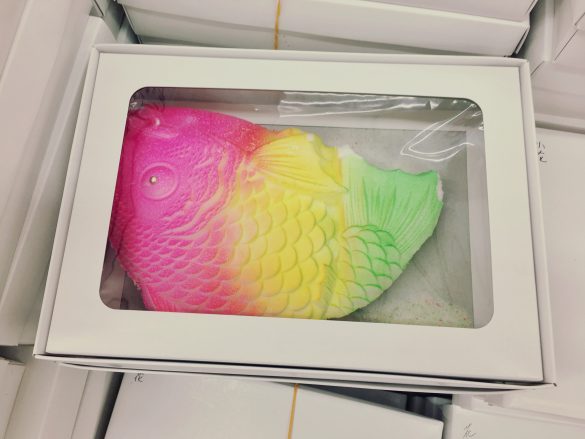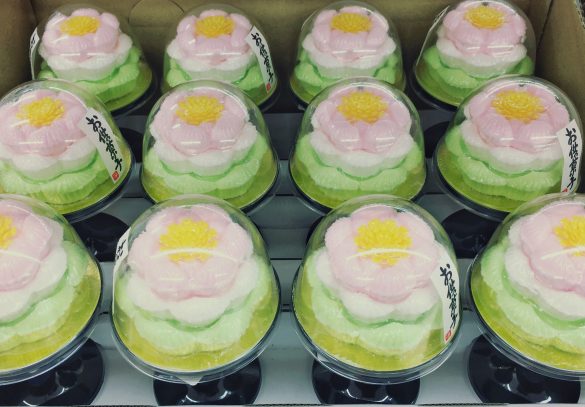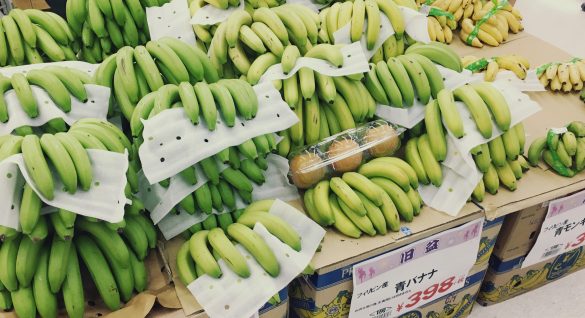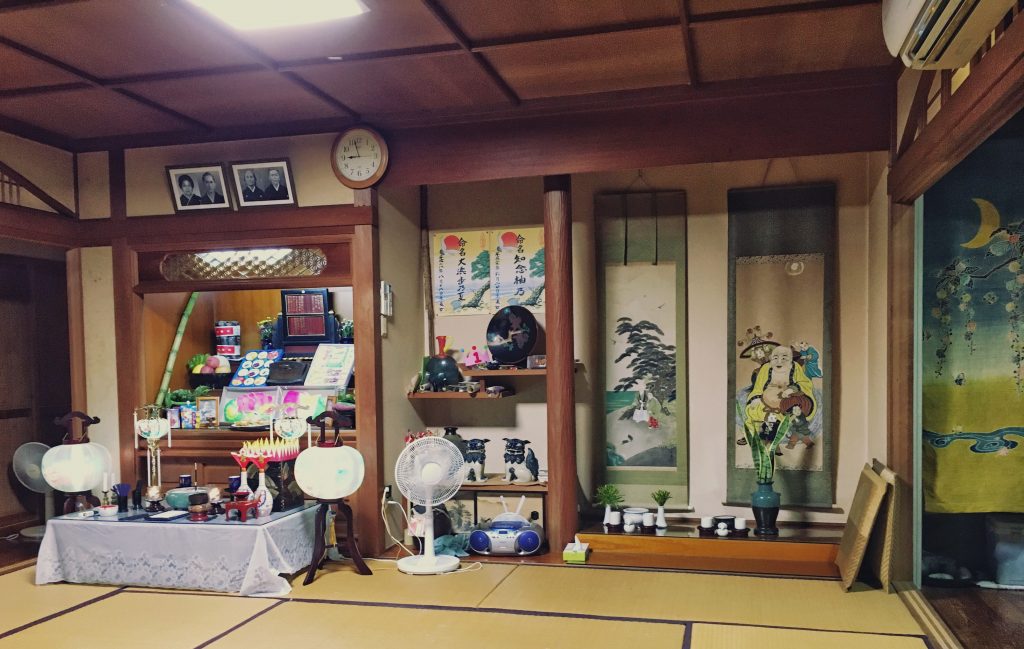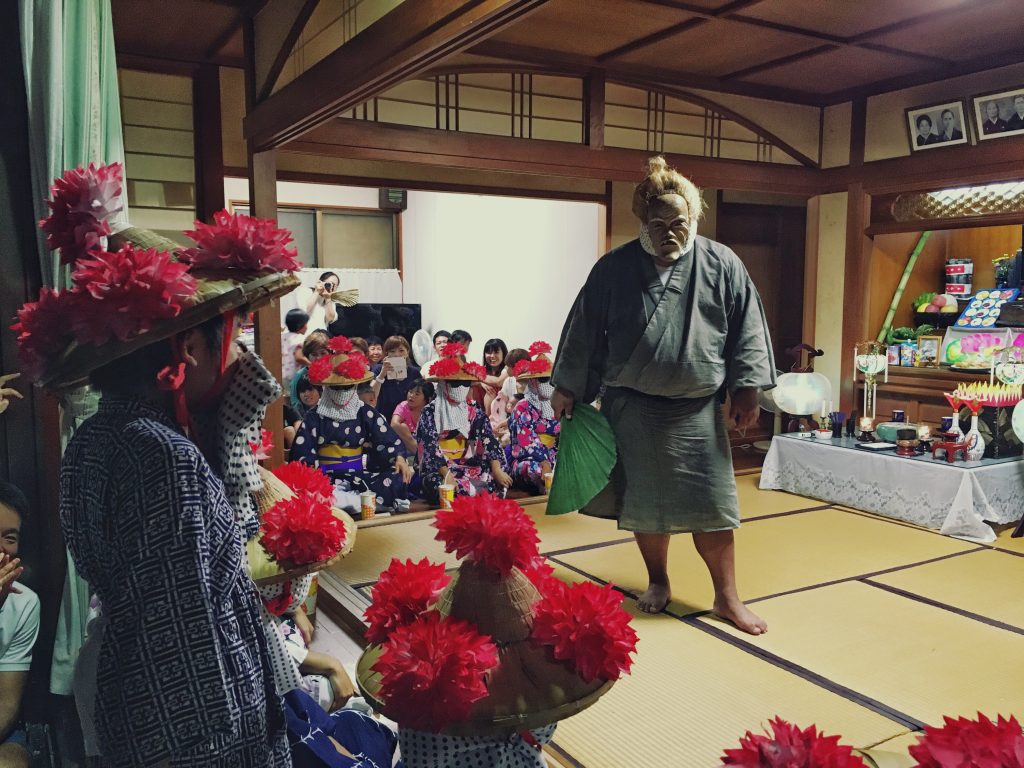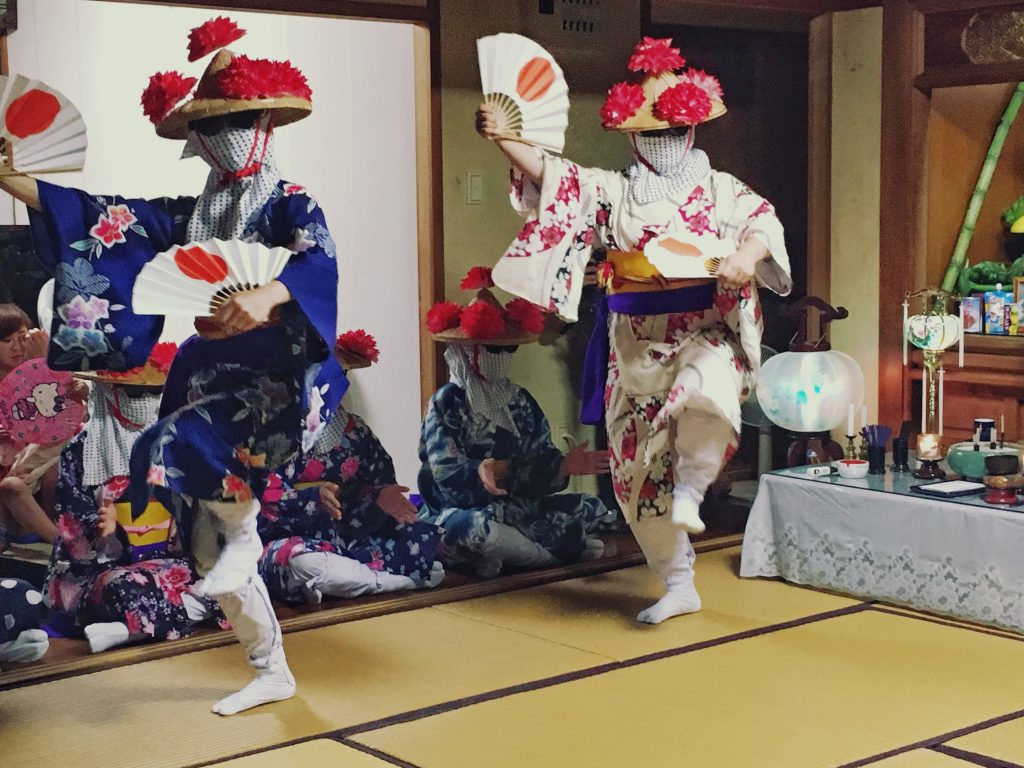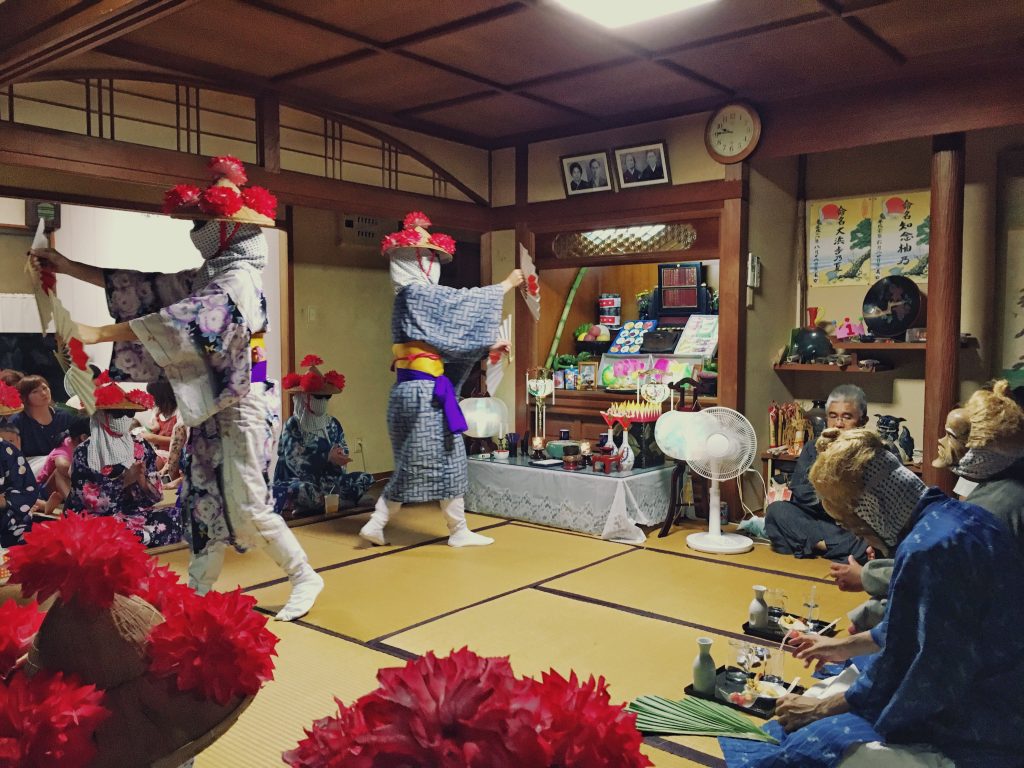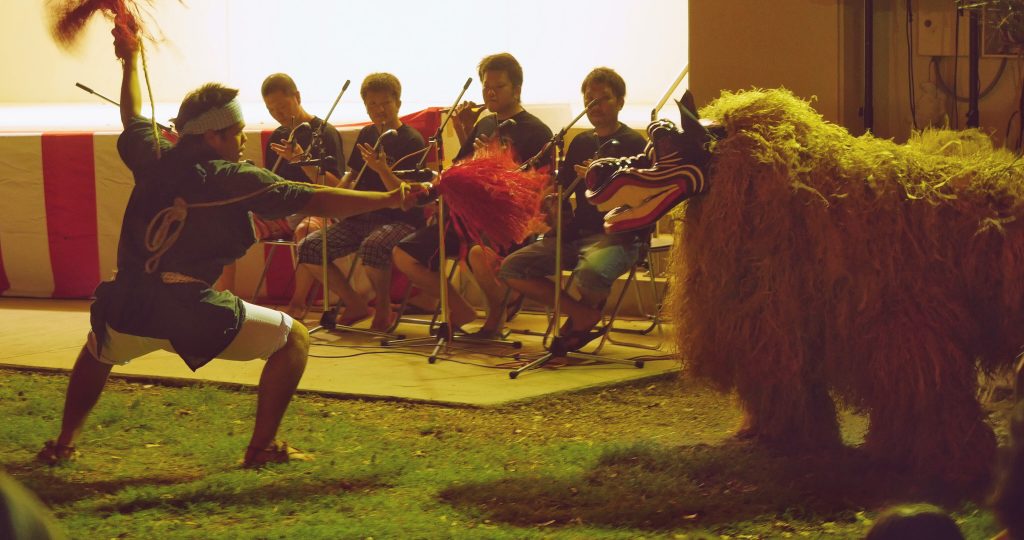[:en]The day after O bon (or Bon).
Obon, the festival to honour the spirits of one’s ancestors
Bon is the most important event in Japan. Many Japanese families reunite with their families in their home town to honour the spirits of their ancestors together. In the Yaeyama islands the event takes place at the 15th of the seventh month according to the kyureki lunar calendar. The moon calendar is still used here, mainly for events and agriculture. Dates and style of celebrating varies from area to area.
On the first day, the ancestors spirits return on earth and are reunited with the family. On the second day the family and the ancestors spirits party together. Public events or home performances with music and traditional dance are organised in several towns. On day three the family guides their ancestors spirits back to the other dimension.
Other dimensions, dances and superstition
People eat together, play music and there is traditional Angama dance. But there is superstition as well. For example local people don’t swim during Bon. It’s believed something bad could happen due to a bad spirit.
Almost every house has a small altar inside and people place a variety of food offerings to the spirits of ancestors.
Some houses celebrate Bon differently. In the town of Tonoshiro two masked characters, old man (Uchumai) and old woman (Nmi) represent ancestral spirits and answer in a humorous way to questions about the afterlife asked by villagers. This home performance could be an old Ishigaki samurai custom.
Masked performers dance traditional Angama dances.
This performance was on the second day. Today it’s the day after the third and last day of obon. All spirits should be returned by now. However it’s believed some of them are ‘lost’ and can’t find their way back. In the village of Shiraho lions take care of these last spirits return.
Small kids and lions
Traditionally the lion ‘bites’ a young child during this performance. It’s said the lion protects the child from evil.
[:nl]Vandaag is het de dag na o bon (of Bon).
Obon, het festival waarbij de ziel van de voorouders wordt geëerd
Bon is het belangrijkste evenement in Japan. De meeste mensen gaan voor Bon terug naar hun geboorteplaats en hun familie om gezamenlijk de voorouders te eren. Het duurt drie dagen en vindt plaats op de 15e van de zevende maand in de Kyureki maankalender. Eerder schreef ik al dat de maankalender hier nog voor veel momenten gebruikt wordt, vooral door boeren en vissers en voor evenementen. O bon in de Yaeyama eilanden en Okinawa vindt daarom op een andere dag plaats dan Bon in de rest van Japan.
Op de eerste dag worden de zielen van de voorouders herenigd met hun familie. Op de tweede dag wordt er feestgevierd en gedanst. Tijdens publieke evenementen wordt traditionele muziek gemaakt en gedanst. Op dag drie begeleidt de familie de voorouders weer terug naar de andere dimensie.
Andere dimensies, dans en bijgeloof
Families eten samen, er wordt gedanst, maar er is ook bijgeloof. Er wordt door de lokale bevolking bijvoorbeeld niet gezwommen tijdens deze dagen, omdat er gedacht wordt dat een geest iets slechts met je in de zin zou kunnen hebben.
Bijna elk huis heeft een altaar waar tijdens Bon etenswaren en specifieke producten voor de voorouders op neergezet worden.
Sommige huizen vieren Bon anders. In het dorp Tonoshiro beelden twee gemaskerde karakters, oude man (Uchimai) en oude vrouw (Nmi) de zielen van de voorouders uit en hebben humoristische antwoorden uit het publiek op vragen over het hiernamaals. Deze uitvoering zou een oud Ishigaki samurai gebruik kunnen zijn.
Gemaskerde performers dansen traditionele Angama dans.
Deze uitvoering was op de tweede dag. Vandaag is het de dag na de derde en laatste dag van Bon. Alle voorouders zijn weer teruggekeerd. Maar er wordt geloofd, dat sommigen van hen de weg kwijt zijn en hun weg terug niet kunnen vinden. In het dorp Shiraho is op de dag na Bon een festival met leeuwen die de laatste voorouders terug zullen brengen.
Kleine kinderen en leeuwen in Shiraho
Volgens de traditie ‘bijt’ de leeuw een klein kindje tijdens het festival. Er wordt gezegd, dat de leeuw het kind beschermt tegen het kwaad.
[:]

